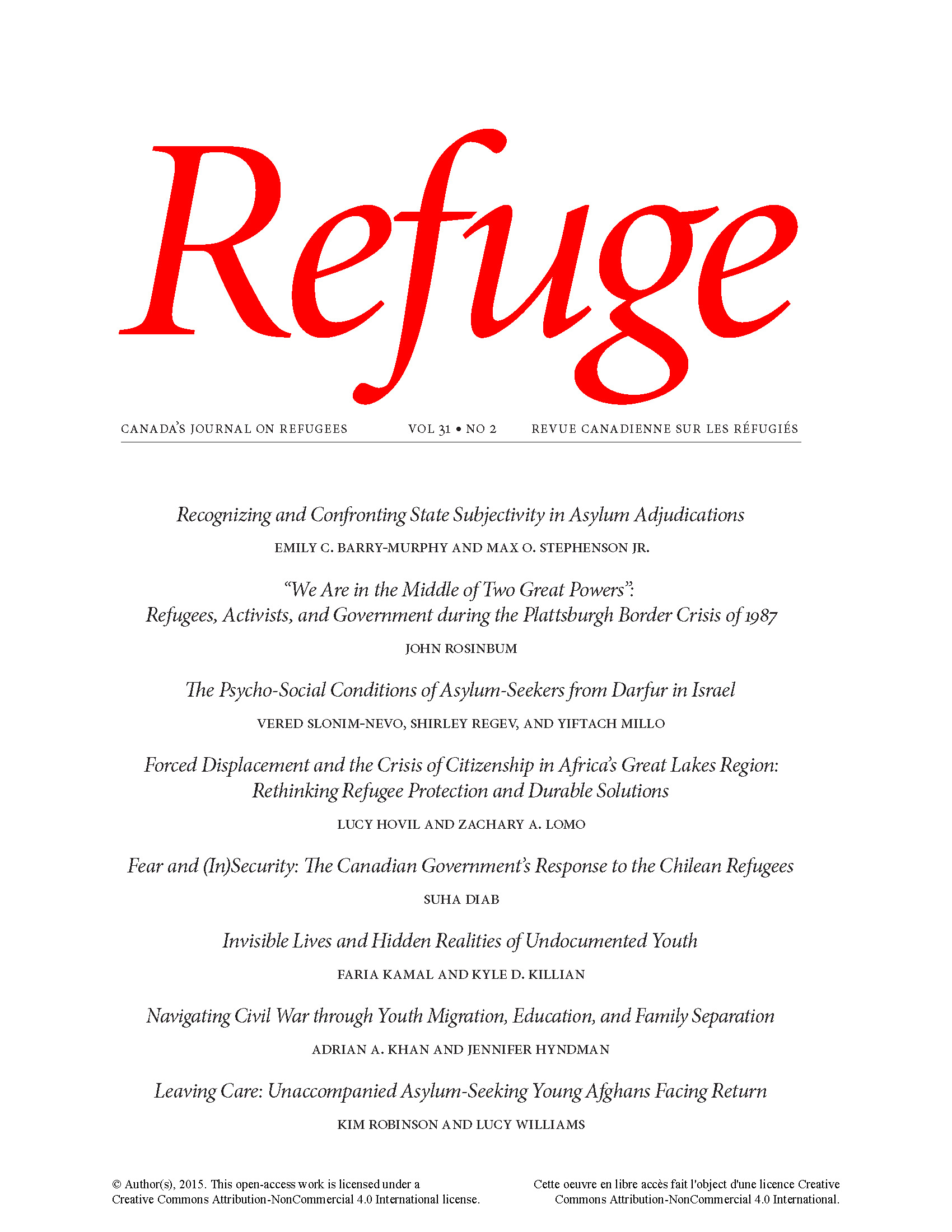Fear and (In)Security: The Canadian Government’s Response to the Chilean Refugees
DOI:
https://doi.org/10.25071/1920-7336.40309Keywords:
Canada, Chilean refugees, refugee policy, foreign policy, assemblage, civil activism, cultural racismAbstract
This article examines Canada’s response to the Chilean refugee crisis in 1973. It explores the conditions that made the resettlement of Chilean refugees possible, despite the reluctance of the Canadian government to provide protection for them. The article focuses on the relation between the Canadian overnment’s regulatory discourses and practices on the one hand, and the Canadian public’s contestation of, and challenges to, such discourses and practices on the other. The Chilean refugee crisis revealed that the Canadian refugee protection regime was subject to political ideology, with very little consideration given to the suffering of refugees constructed as a threat to Canadian social, political, and economic well-being. However, civil society played a pivotal role in compelling the government to take a stance toward the refugees, though the government was able to control refugee reception by being deliberately selective about which lives it would save. The visibility and the success of the Canadian public in advocating on behalf of the Chilean refugees demonstrated the potential of this emerging civil power to affect refugee policies and practices while also revealing its limitations.
Metrics
Downloads
Published
How to Cite
Issue
Section
License
Copyright (c) 2015 Suha Diab

This work is licensed under a Creative Commons Attribution-NonCommercial 4.0 International License.
Refuge authors retain the copyright over their work, and license it to the general public under the Creative Commons Attribution-Non Commercial License International (CC BY-NC 4.0). This license allows for non-commercial use, reproduction and adaption of the material in any medium or format, with proper attribution. For general information on Creative Commons licences, visit the Creative Commons site. For the CC BY-NC 4.0 license, review the human readable summary.







